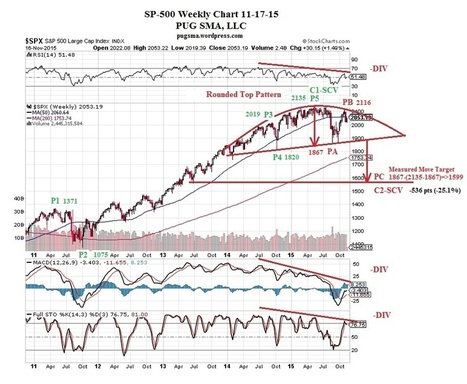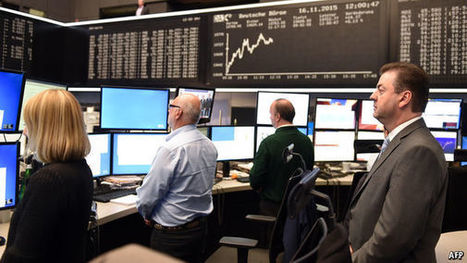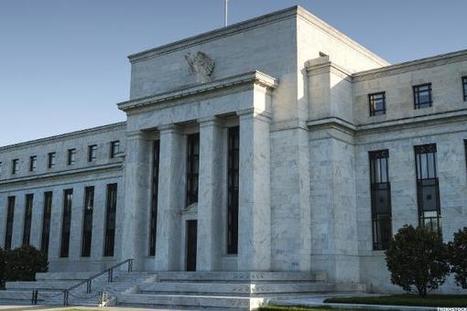Not long ago the Bernanke (DEF) put was in full force. It meant that if the economic news was bad the FED would cut interest rates and bail the market Out. If the economic news was good then stocks would go up on the good news. Fast forward to today and we have the first FED hike and the FED put is slowly but surely getting reversed with the FED funds rate still close to record lows. This is bad news for risk assets globally as the FED is now surely powerless to support asset prices with their monetary policy.
Critical Energy Transition Minerals at the United Nations
-
Both China and the USA are panel members and have a valuable opportunity to
constructively engage and prevent negative resource nationalism.
11 minutes ago























2) Keeping An Open Mind About The U.S. Stock Market
3) Watch these 3 charts when the Fed makes a rate move
4) This chart warns that stock market investors should be on high alert
5) 3 Numbers: Eurozone deflation risk receding, but only slightly
6) The GDP In Charts: Deflation Helps Indian Economy Grow 7.4% But Nominal Growth at 6%